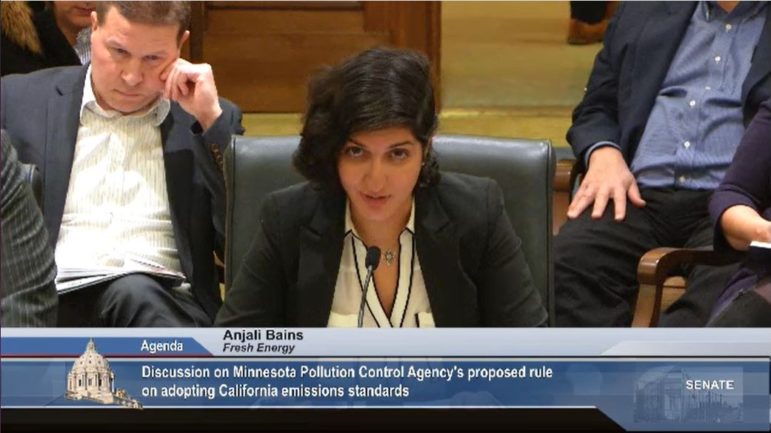
This year’s legislative session is well underway, and we’re working on a lot (as in, a lot). Fresh Energy is tracking more than 20 clean-energy related bills and staff have testified on important issues like Clean Car Standards, seasonal use of coal plants, and climate change. Woven throughout all of this is our deep commitment to making sure that Minnesota’s clean energy policies have equity at their core. Here is a snapshot of a few of the key issues we’re working on:
Increasing the minimum spending requirement for utility energy efficiency programs serving under-resourced households:
Fresh Energy supports the Governor’s One Minnesota Path to Clean Energy package, which includes updates to the state’s Conservation Improvement Program (CIP). Importantly, the governor’s vision would double utilities’ minimum spending requirement for energy efficiency programs serving under-resourced households. This action is critical, as under-resourced households spend up to three times more of their household income on energy compared to the average household. We see this increase as necessary, but only a first step, as the recent CIP Potential Study found that Minnesota utilities can do much more to meet the energy efficiency potential in under-resourced households over the next decade.
Expanding access to solar:
Minnesota is a national leader in solar development, but as the clean energy transition continues it is crucial to ensure that all Minnesotans have access to the benefits of renewable energy. A bill developed by Minneapolis-based Cooperative Energy Futures would expand access to new community solar gardens for under-resourced households by revising the rate structure for eligible projects (known as “community access projects”) and eliminating credit score requirements. Fresh Energy has been working for several years to remove barriers to access in solar programs, and we applaud the solutions raised in this legislation.
Grant funding to invest in energy efficiency in multifamily buildings:
In mid-February, the Minnesota House Climate Action Caucus introduced its “Can Do Climate Action” bill, a supplemental budget proposal which includes Fresh Energy’s energy efficient nursing homes initiative as well as a $15 million grant program for energy efficiency in commercial buildings, with priority given to multifamily properties. We support this effort to expand energy efficiency in multifamily buildings, as increased energy efficiency can help lower operating costs for building owners and provide bill savings and increased health and comfort for renters.
Monitoring “Clean Energy First”:
Another component of the Governor’s One Minnesota Path to Clean Energy package is its “Clean Energy First” policy. Clean Energy First was passed by the Minnesota House in 2019 and the Minnesota Senate is currently working on their version for possible passage in 2020. While Fresh Energy is encouraged to see the senate developing their own version, we have concerns with their current bill language that defines municipal solid waste incineration as carbon-free energy for the purposes of resource planning, as well as an unnecessary provision to shift utility cost burdens to residential customers.
And more…
As the legislative session rolls on, Fresh Energy will be working hard to advance progress on clean energy and ensure equitable outcomes for all Minnesotans.
Keep up to date on Fresh Energy’s 2020 legislative priorities and efforts to shape energy policy in Minnesota. Visit our Take Action page for ways to get involved and subscribe to our e-mail newsletter Powering Progress, Facebook, and Twitter for the latest news.
You can also subscribe to “Decarbonize,” our new podcast! Find it online here or on major podcast providers including Apple Podcasts, Spotify, and more.
